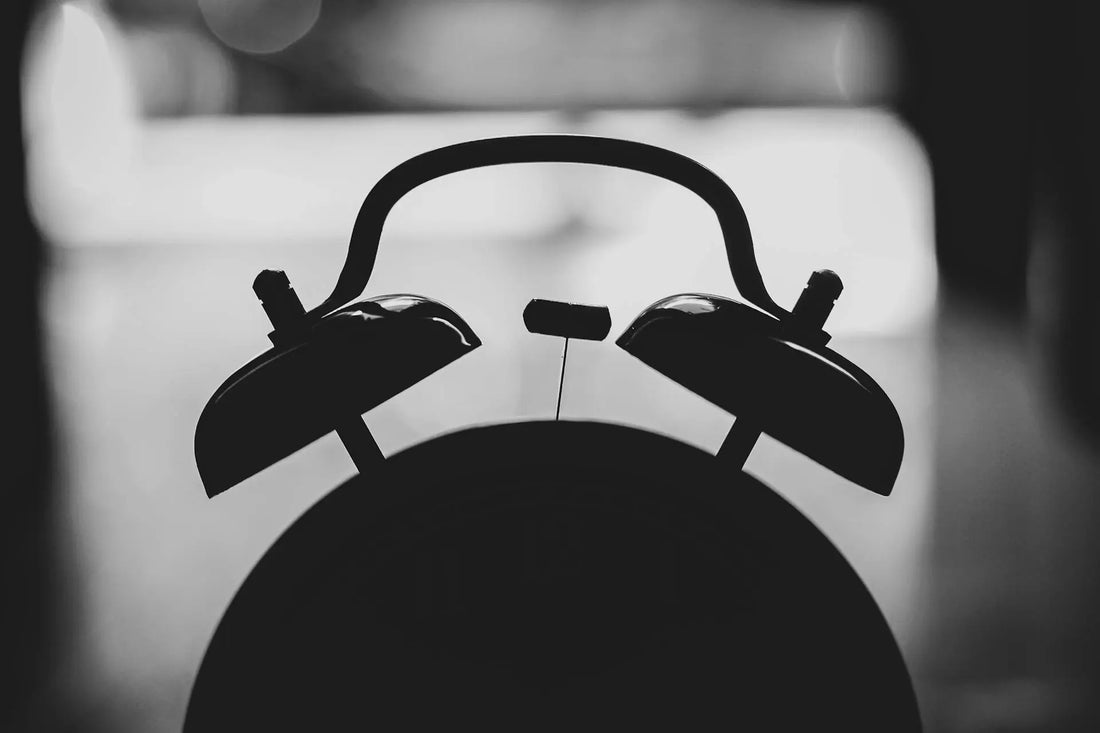
How to sleep well?
A night of tossing and turning is exhausting. But several nights of insomnia? The lack of sleep is increasing, making your days harder to manage with the concentration you desire.
When you're dragging yourself through the day after a bad night's sleep, you want to know how to get a good night's sleep. Here are our top tips to help you get back to restful sleep.
What gets in the way of a good night's sleep?
The first step in knowing how to sleep better is to figure out what's keeping you up at night. There are some pretty common things that can creep into your nights and keep you awake:
- Caffeine: Caffeine blocks chemical messengers in the brain that signal it's time to sleep. This can be helpful if you need a morning coffee , but it's very bad if the caffeine is still in your system when you're trying to sleep.
- Too hot: Your body's core temperature needs to drop a few degrees for you to fall asleep, so if you're too hot, you'll have trouble getting a good night's sleep .
- Too much light: Light stunts the brain’s production of melatonin . When people relied primarily on the sun for light, the brain produced melatonin and people weren’t exposed to too much light. But today, with phones, artificial lights in our ceilings, and even bedside lamps, the brain’s production of melatonin is regularly interrupted.
- Long Naps: While it may be nice to take a long nap during the day, it will take a toll on you at night. After a long nap, your body will feel a little less sleepy and will feel the need to stay awake longer . Therefore, if you take a long nap during the day or even a short nap in the early evening, it could be interfering with your sleep at night.

How to Adopt Good Sleep Habits
One of the most important elements of getting a good night's sleep is having good sleep hygiene habits. By adopting certain sleep hygiene practices, you'll turn them into habits, which will help you sleep better at night. These basic elements of your habits will help you get restful sleep:
- Establish a routine: A nighttime routine helps remind your body that it’s time to sleep. These little cues will help you relax and get ready to fall asleep . Your routine might include washing your face, brushing your teeth, taking a bath, meditating, reading, and drinking a glass of warm milk. However you wind down, make it a regular routine to signal to your body that it’s time for bed.
- Create the perfect sleep environment: Your night’s sleep is only as good as your environment. Creating a cool, dark, and comfortable space is essential to sleep. You don’t want ambient light telling your body it’s time to wake up. You don’t want noises to keep you awake. You don’t want a soft mattress to keep you awake for hours. By properly designing your sleep environment, you’re establishing good sleep habits.
5 tips for sleeping well at night naturally
Ready to get your restful sleep back? Here are five tips for getting a good night’s sleep naturally:
Exercise
People who exercise during the day experience less daytime sleepiness and sleep better at night . The more vigorous the exercise, the greater the sleep benefits. But even a light walk every day will help you sleep better in the long run.
Exercise boosts the effects of your natural sleep hormones, which can help you sleep better at night. But to reap the benefits of exercise, timing is key. Exercising too close to bedtime will stimulate your brain and keep you awake .

Try exercising in the morning instead.
Exercising outdoors in the morning will expose you to natural sunlight and help you feel more awake during the day, and the exercise will then help you sleep better at night.
Remember that it takes weeks or even months to see the beneficial effects of exercise on sleep, so it's important to get into the habit of exercising regularly .
Watch what you eat and drink
A rumbling stomach can definitely keep you awake, which is why it's important to eat to get a good night's sleep. But you need to watch when you eat . A full stomach at bedtime from a big meal right before bed can keep you awake while your body digests.
So if you're feeling hungry right before bed, reach for an apple or something small that will make you hungry but won't keep you awake. Eating a healthy diet rich in vegetables and fruits can also help you sleep better at night . Red meat and fatty foods can actually keep you going for longer than you'd like.
Additionally, spicy foods can cause heartburn, which is definitely not good for restful sleep. Long-term healthy eating habits promote long-term healthy sleeping habits . Additionally, what you drink is also important.
Coffee and other caffeinated beverages can disrupt your sleep for up to 10 to 12 hours after you drink them. Save coffee as a morning pick-me-up. Even eating chocolate too close to bedtime can keep you awake . On the other hand, alcohol may help you relax and feel sleepy, but it interferes with your sleep cycle once you're asleep.
Skip the last drink so you don't wake up at night and have trouble getting back to sleep.
Stay in tune with your body
Your body has a natural circadian rhythm, and getting in sync with it is one of the best ways to get better sleep. To do this, try to stick to a consistent sleep schedule. Go to bed at the same time every night and wake up at the same time every day . Even on the weekends, it's important to wake up at the same time every day. While sleeping in feels good, it disrupts your circadian rhythm, which can make it harder to fall asleep when you're trying to get to bed.

Avoid technology
One of the most common sleep tips is to avoid tech right before bed, but there’s a reason this advice is so common. Artificial light from your phone, laptop, or even your e-reader reduces the production and effectiveness of melatonin.
Even without considering light issues, electronic devices can also stimulate the brain. Most TV shows, movies, and video games are too stimulating for a pre-bedtime activity.
Instead, opt for a relaxing activity like meditation or listening to an audiobook.
Learn how to fall back asleep
If you've been tossing and turning for hours or wake up and can't get back to sleep, there are a few techniques you can try to relearn how to fall asleep.
Don't stay in bed: If you can't fall asleep for more than 15 minutes, get out of bed and do something less stimulating. You can try reading a book in dim lighting for 15 to 30 minutes . This practice helps your body associate your bed with sleep and can help you avoid becoming anxious about not being able to fall asleep.
Discover our collection of night light alarm clocks

Focus on relaxation instead of sleep: If you focus too much on sleep, you will stay awake. On the other hand, if you focus on relaxing your body and mind, you will be in a state that is conducive to sleep and you will not be obsessed with your inability to fall asleep .
Take time to meditate, breathe deeply, visualize or try progressive muscle relaxation.
Avoid worrying: Daytime activities can keep you awake, so it's important to practice detaching yourself from your worries when you're in bed.
Try keeping a pad of paper by your bed to write down what's bothering you and help you let go of it for now.
These tips can help you sleep better at night and spend less time tossing and turning.






